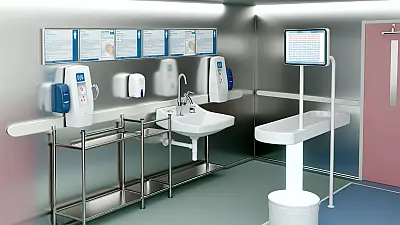HONOLULU, HI - Federal inspectors documented serious care planning deficiencies at Avalon Care Center - Honolulu that failed to protect residents requiring specialized medical monitoring, including a dialysis patient whose vital access site checks were omitted from care plans and a catheter patient whose care plan lacked essential safety protocols.

Critical Gaps in Dialysis Patient Care
During the April 2025 inspection, surveyors discovered significant oversights in the care of a dialysis patient whose life-sustaining treatment was compromised by inadequate monitoring protocols. The resident, who had been receiving hemodialysis treatments through an arm fistula access site, reported that nursing staff would remove pressure dressings "when they have time" and failed to properly check the access site's functionality.
Medical experts note that dialysis access sites require meticulous monitoring to prevent life-threatening complications. The fistula - a surgically created connection between an artery and vein - serves as the lifeline for dialysis patients, filtering waste from their blood three times weekly. Staff must assess for "thrill and bruit" - the vibration and sound that indicate proper blood flow through the access site.
When inspectors reviewed the patient's care plan on April 2nd, they found it included monitoring for signs of infection but completely omitted the critical intervention to assess the access site for thrill and bruit. The Director of Nursing confirmed during interviews that these assessments should occur before and after each dialysis session and during every nursing shift, acknowledging the care plan deficiency.
The absence of proper fistula monitoring places dialysis patients at extreme risk. A compromised access site can lead to clotting, infection, or complete failure, potentially requiring emergency surgery and threatening the patient's ability to receive life-sustaining dialysis treatments. Industry standards mandate that nursing staff check fistula function multiple times daily, as early detection of problems can prevent access site loss and avoid the need for temporary catheters that carry higher infection risks.
Catheter Care Plan Failures Create Infection Risk
Inspectors also identified dangerous gaps in care planning for a resident requiring an indwelling urinary catheter. The patient, who developed urinary retention requiring catheter insertion on March 26th, had no catheter-specific care protocols in his care plan despite the significant infection risks these devices pose.
During observations, surveyors found the resident's catheter drainage bag placed directly on the floor without any protective barrier - a practice that violates basic infection control principles. Catheter-associated urinary tract infections rank among the most common healthcare-associated infections, affecting up to 25% of patients with indwelling catheters.
Medical records showed the resident experienced 600 milliliters of urine retention, prompting physicians to order catheter insertion. However, the care plan contained no catheter-focused goals, interventions, or monitoring protocols. The Director of Nursing acknowledged this oversight during interviews, confirming that catheter care should have been incorporated into the care plan immediately upon insertion.
Proper catheter management requires specific interventions to prevent complications. Care plans should include protocols for daily catheter care, drainage bag positioning, monitoring for signs of infection, and regular assessment for removal readiness. Without these protections, residents face increased risks of urinary tract infections, bladder stones, and sepsis - potentially life-threatening complications that can be prevented through appropriate care planning.
Care Planning System Failures
The documented violations reveal systemic failures in the facility's care planning process, which serves as the foundation for safe resident care. The facility's own policy requires comprehensive, person-centered care plans that address all identified medical and nursing needs through measurable objectives and specific interventions.
Federal regulations mandate that nursing homes develop complete care plans within seven days of admission and update them whenever residents' conditions change. These plans must be prepared, reviewed, and revised by interdisciplinary healthcare teams to ensure all aspects of resident care are properly coordinated.
The inspection findings demonstrate that Avalon Care Center's care planning system failed to capture critical medical interventions for specialized treatments. Both the dialysis patient and catheter patient required specific monitoring protocols that were either omitted entirely or inadequately addressed in their care plans.
Industry best practices emphasize that care plans must reflect the actual care residents receive. When treatment administration records show that staff perform certain assessments - like the dialysis fistula checks noted in this case - those interventions must be formally documented in care plans to ensure consistency and accountability.
Medical Implications and Standards
The violations identified at Avalon Care Center highlight the critical importance of comprehensive care planning in preventing medical complications. Dialysis access sites represent the most valuable asset for patients with end-stage renal disease, requiring vigilant monitoring to ensure continued function. Similarly, indwelling catheters require structured care protocols to prevent infections that can lead to sepsis and death.
Professional nursing standards emphasize that care plans serve as communication tools among healthcare team members, ensuring continuity of care across shifts and departments. When critical interventions are omitted from care plans, residents become vulnerable to inconsistent care and missed assessments that could prevent serious complications.
Additional Issues Identified
The inspection also documented concerns related to moisture-associated skin damage care planning, where a resident's antifungal treatment intervention was not properly incorporated into the care plan after skin condition identification. This pattern of care plan inadequacies suggests broader systemic issues with the facility's care planning processes that extend beyond the dialysis and catheter care violations.
The Centers for Medicare & Medicaid Services classified these violations as causing "minimal harm or potential for actual harm" affecting "few" residents, though the nature of the deficiencies could have resulted in serious medical complications if not addressed promptly.
Full Inspection Report
The details above represent a summary of key findings. View the complete inspection report for Avalon Care Center - Honolulu, LLC from 2025-04-03 including all violations, facility responses, and corrective action plans.
💬 Join the Discussion
Comments are moderated. Please keep discussions respectful and relevant to nursing home care quality.